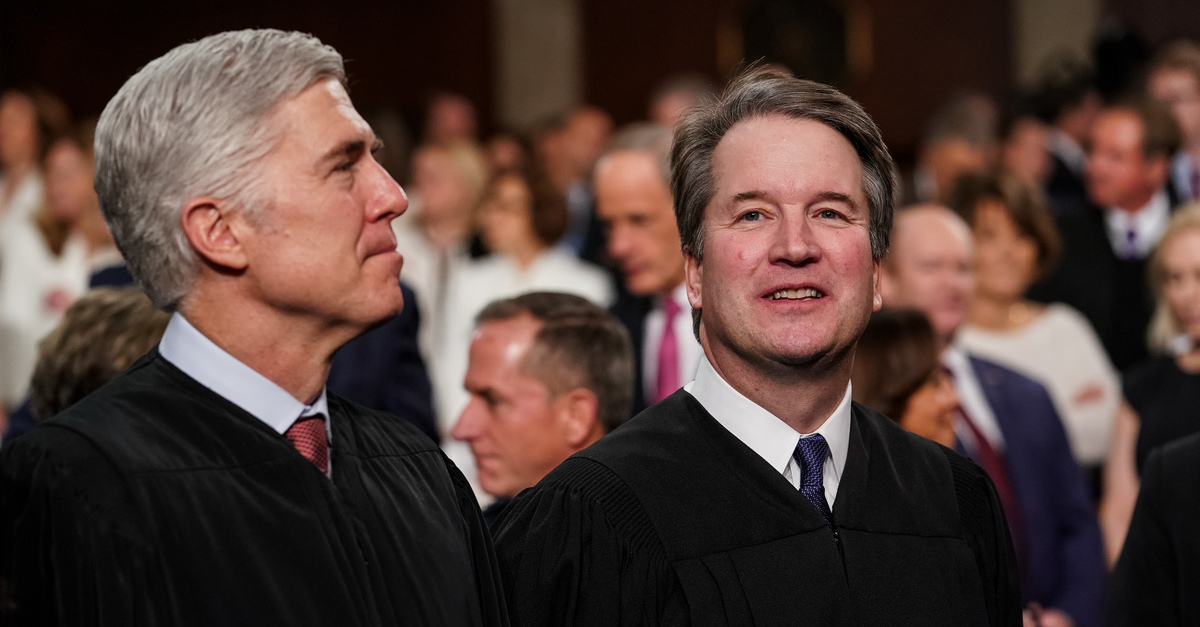
The Supreme Court on Monday dismissed as moot (a.k.a. ‘legally pointless’ — our words, not the Court’s) a case filed by the New York State Rifle & Pistol Association.
The group argued that a New York City gun rule “prevented their transport of firearms to a second home or shooting range outside of the city,” per the Court’s summary, and that the city rule therefore violated the Second Amendment. In the midst of the litigation, New York State and New York City both amended their gun licensing laws, in essence giving in to the core of the group’s demands. Hence the mootness of the case.
“[P]etitioners may now transport firearms to a second home or shooting range outside of the city, which is the precise relief that petitioners requested in the prayer for relief in their complaint,” the Court ruled in a terse two-page “per curiam” unsigned order of the Court (citations omitted):
“Our ordinary practice in disposing of a case that has become moot on appeal is to vacate the judgment with directions to dismiss. However, in instances where the mootness is attributable to a change in the legal framework governing the case, and where the plaintiff may have some residual claim under the new framework that was understandably not asserted previously, our practice is to vacate the judgment and remand for further proceedings in which the parties may, if necessary, amend their pleadings or develop the record more fully.”
It’s easy to unravel who is on what side of the argument, however, because three justices dissented. Samuel Alito, Neil Gorsuch, and Clarence Thomas all wanted to keep the case alive because the group tried to pile other claims into the original claim. For instance, it is up for debate whether the amended laws prevent stops for, e.g., food and bathroom breaks between home and another destination. The gun owner group also sought to insert a damages claim into the original case. The majority noted that the case would need to be relitigated from the ground up, but the dissenters said, “This case is not moot. The City violated petitioners’ Second Amendment right, and we should so hold.”
The majority, we know, must have been John Roberts, Ruth Bader Ginsburg, Stephen Breyer, Sonia Sotomayor, Elena Kagan.
Brett Kavanaugh agreed with the majority on procedural grounds while extolling the need for additional Second Amendment litigation.
“I agree with the per curiam opinion’s resolution of the procedural issues before us — namely, that petitioners’ claim for injunctive relief against New York City’s old rule is moot and that petitioners’ new claims should be addressed as appropriate in the first instance by the Court of Appeals and the District Court on remand,” Kavanaugh wrote in a short concurrence.
Kavanaugh went further, however.
“I also agree with J[ustice] A[lito]’s general analysis of Heller and McDonald,” Kavanaugh wrote. “And I share [his] concern that some federal and state courts may not be properly applying Heller and McDonald. The Court should address that issue soon, perhaps in one of the several Second Amendment cases with petitions for certiorari now pending before the Court.”
Kavanaugh was referencing District of Columbia v. Heller, which held that functioning guns could be kept inside the homes of people who were not members of a militia, and McDonald v. Chicago, which held that the Second Amendment applied to the states.
Alito said the dismissal of the New York case as moot “permits [the Court’s] docket to be manipulated in a way that should not be countenanced.” He went on to issue a de facto litigation of the case in a 31-page dissent.
“[T]he lower courts have decided numerous cases involving Second Amendment challenges to a variety of federal, state, and local laws. Most have failed,” Alito said, bemoaning the chance to issue another decision against a state or local government which attempted to restrict firearms rights.
Then, Alito chided the litigation:
“[T]he City’s travel restriction burdened the very right recognized in Heller. History provides no support for a restriction of this type. The City’s public safety arguments were weak on their face, were not substantiated in any way, and were accepted below with no serious probing. And once we granted review in this case, the City’s public safety concerns evaporated.”
[Image via Doug Mills-Pool/Getty Images]